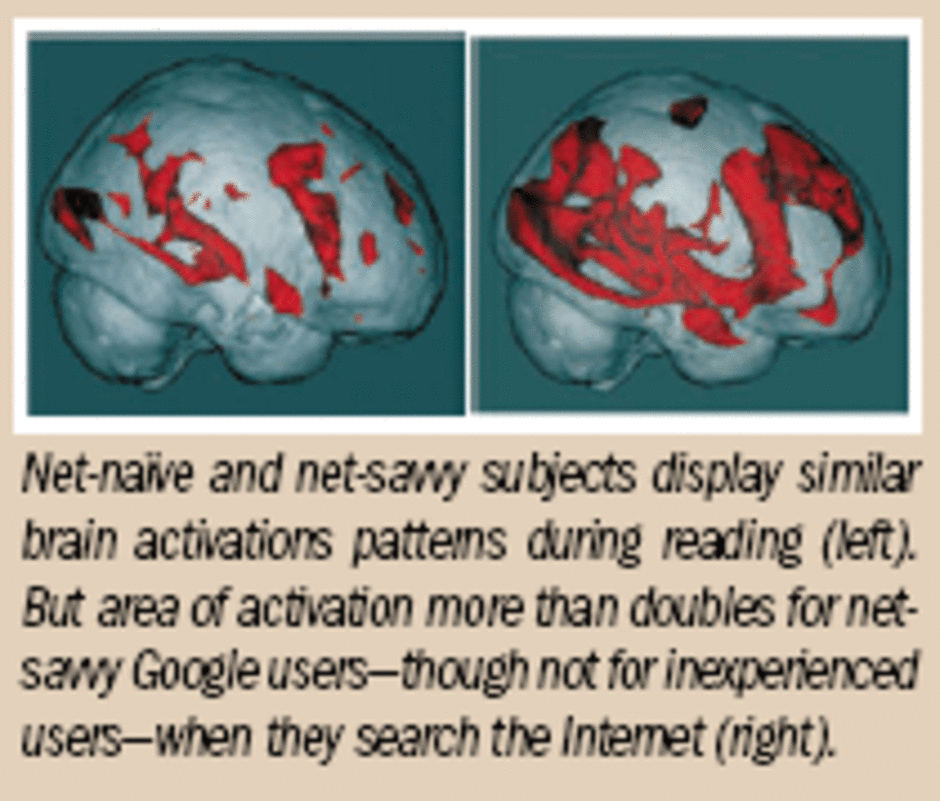Google, it does a brain good
1 กรกฎาคม 2009
Diagnostic Imaging. Vol. 31 No. 7
By James Brice
Do you google? Relying on the Internet's most popular search engine has become second nature for frequent users. For this group, it is obvious that Google is great for finding information, but is the intellectual exercise healthy for the brain? Functional MRI research conducted by Dr. Gary Small at the University of California, Los Angeles suggests that it is.
"There is no absolute proof for the 'use it or lose it's theory of the brain, but it is certainly possible," Small said in an interview. "It may be that web searching could be a brain training activity."
The director of UCLA's Memory and Aging Research Center came to this conclusion after performing blood oxygenation level-dependent fMRI on the brains of 12 net-savvy and 12 net-naïve subjects.
Separate scans were performed on these cognitively normal adults (aged 55 to 78 years) while they were reading a book and searching the web for specific topics.
The magnitude and extent of activation were similar for both groups during reading (left image). But the net-savvy group demonstrated more than two times more activation than the net-naïve group during Internet searches. Activation was more pronounced in the frontal pole, anterior temporal region, anterior and posterior cingulate, and hippocampus—regions associated with decision making, complex reasoning, and vision (right image).

The study was published in February in the American Journal of Geriatric Psychiatry (2009;17[2]:116-123).
ความเห็น (0)
ไม่มีความเห็น